List of Best Monarkh electric guitars with Features and specifications, You can compare electric guitar
prices on different online stores.
Jackson JS Series Monarkh SC JS22
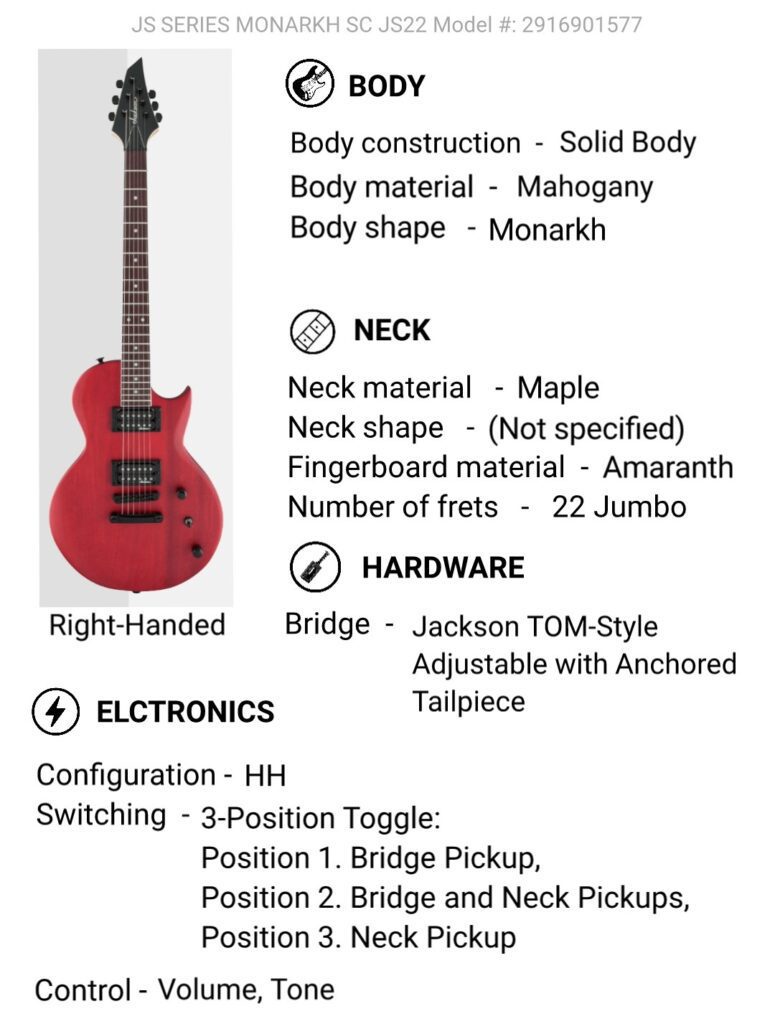
List of Best Monarkh electric guitars with Features and specifications, You can compare electric guitar
prices on different online stores.

List of Best King V electric guitars with Features and specifications, You can compare electric guitar
prices on different online stores.
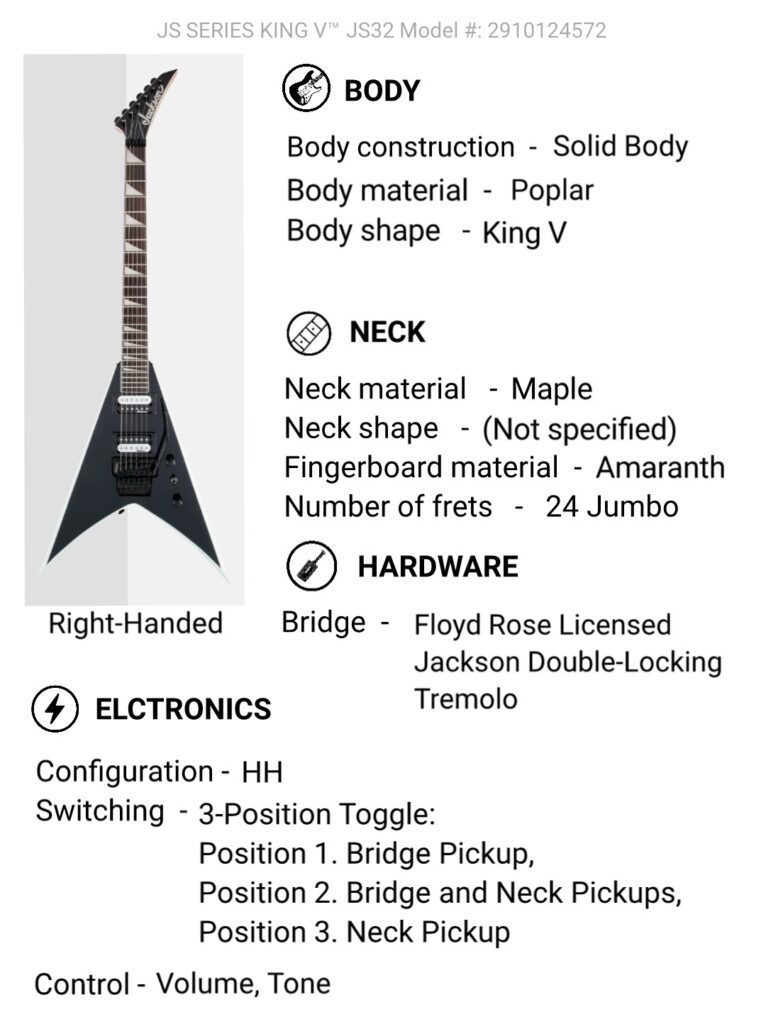
List of Best Warrior electric guitars with Features and specifications, You can compare electric guitar
prices on different online stores.
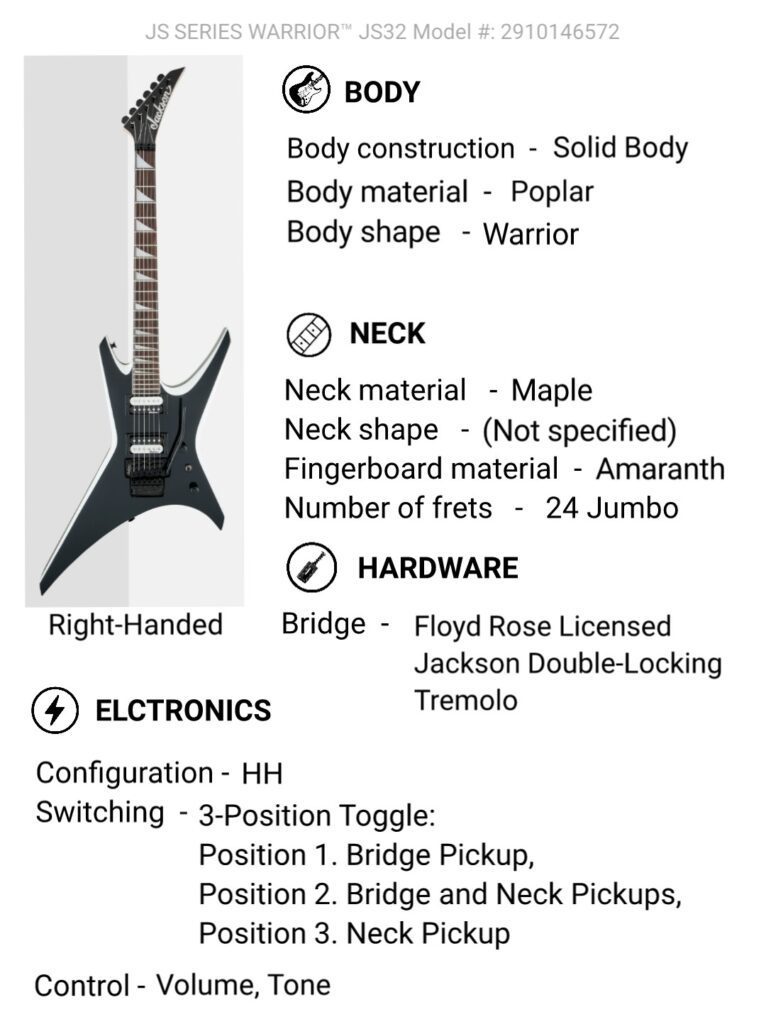
List of Best Rhoads electric guitars with Features and specifications, You can compare electric guitar
prices on different online stores.
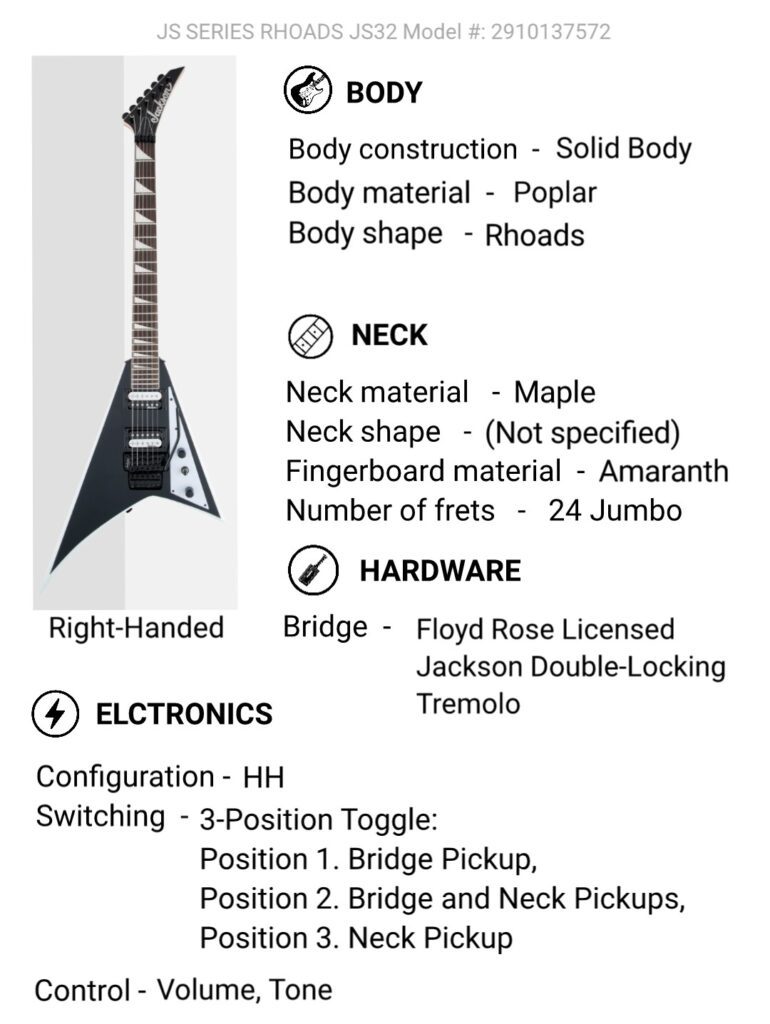
List of Best Dinky electric guitars with Features and specifications, You can compare electric guitar
prices on different online stores.
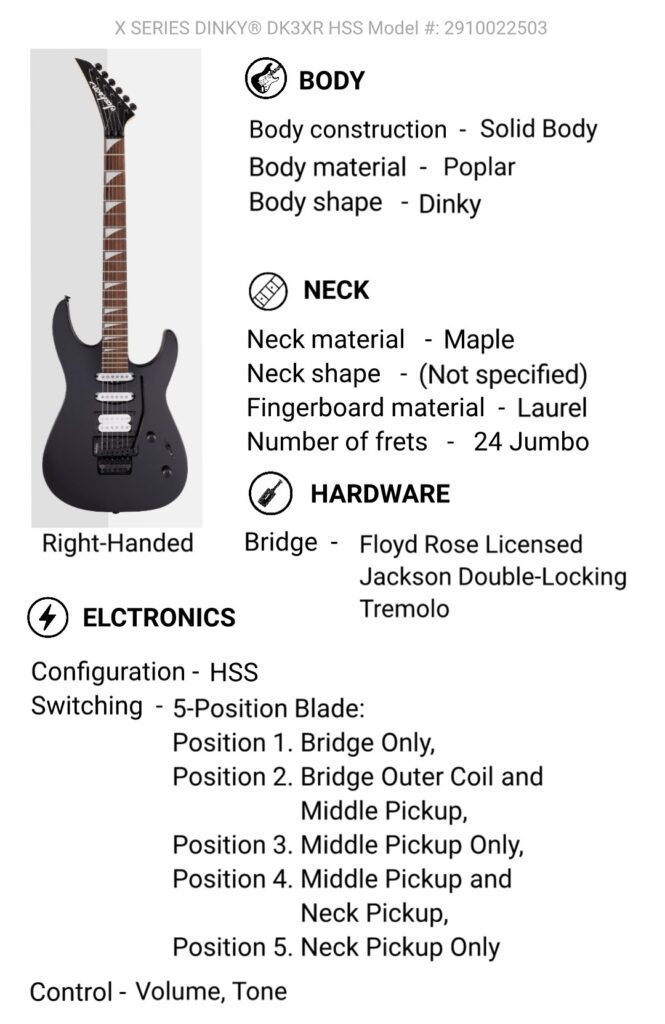
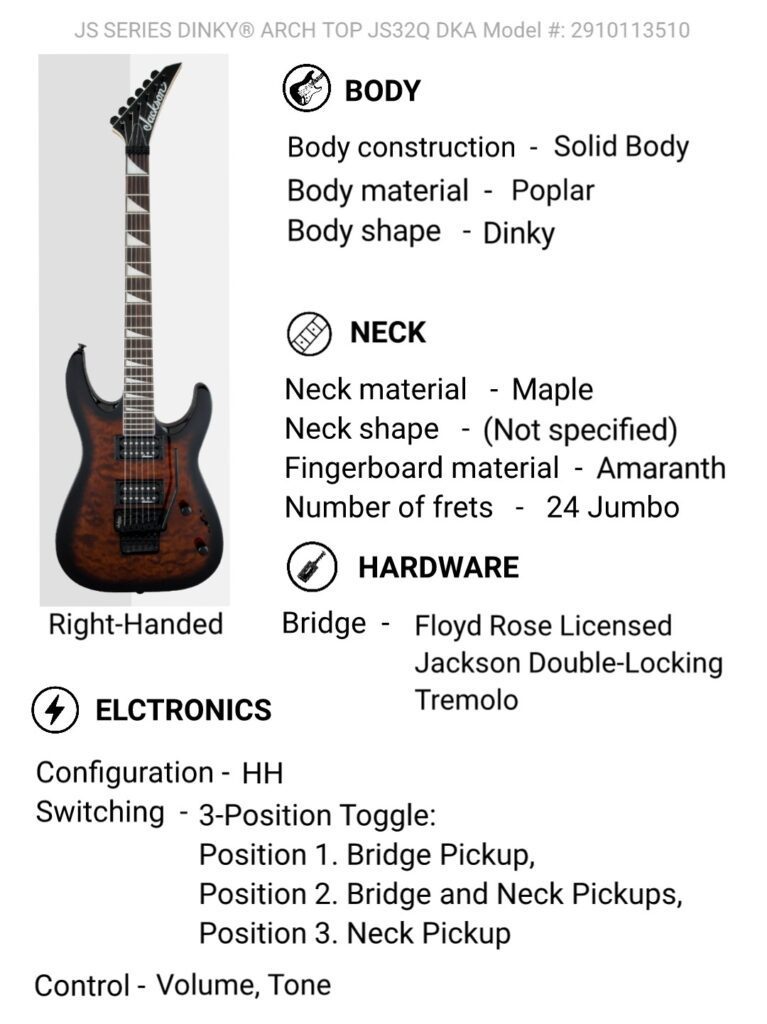
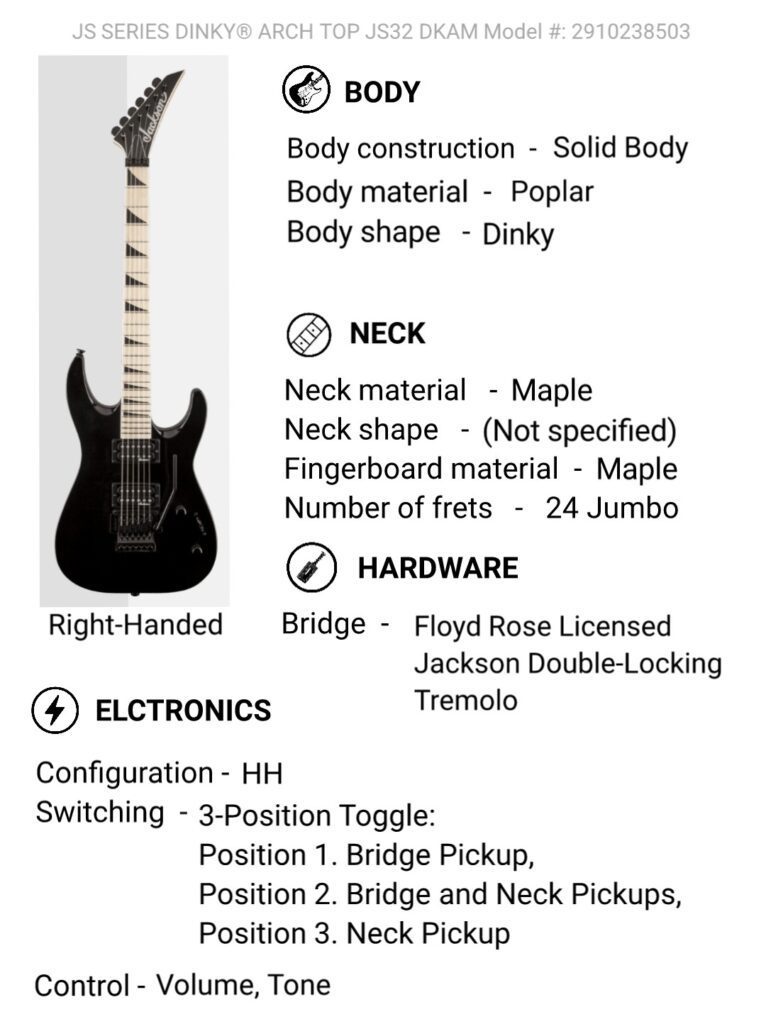
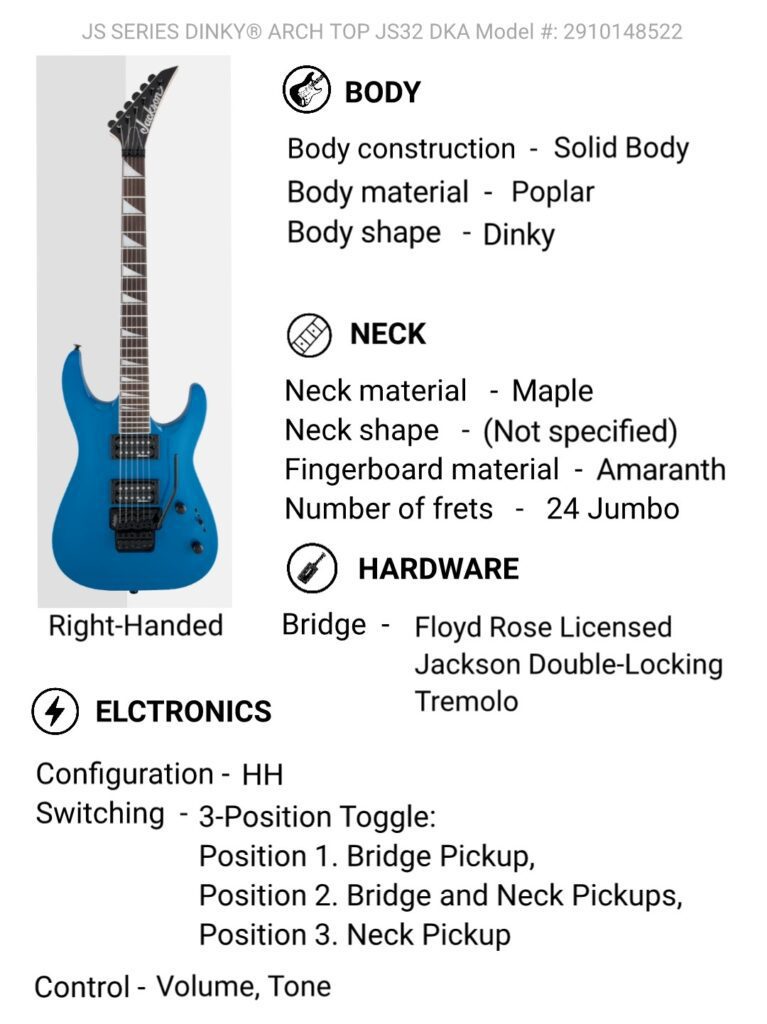
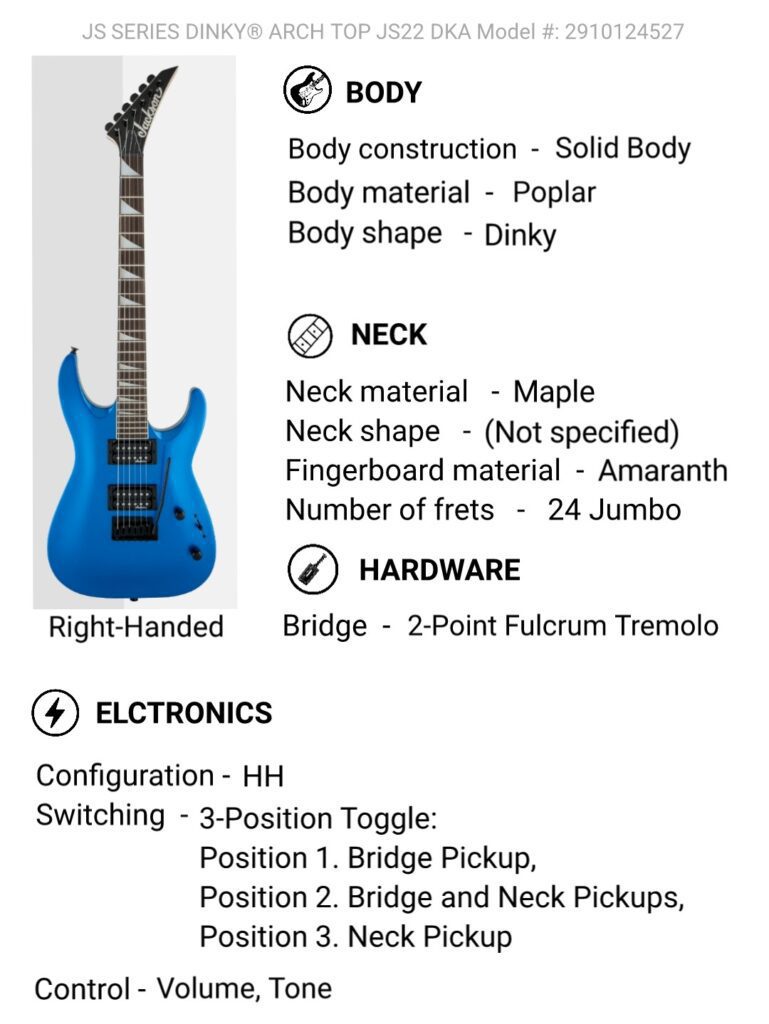
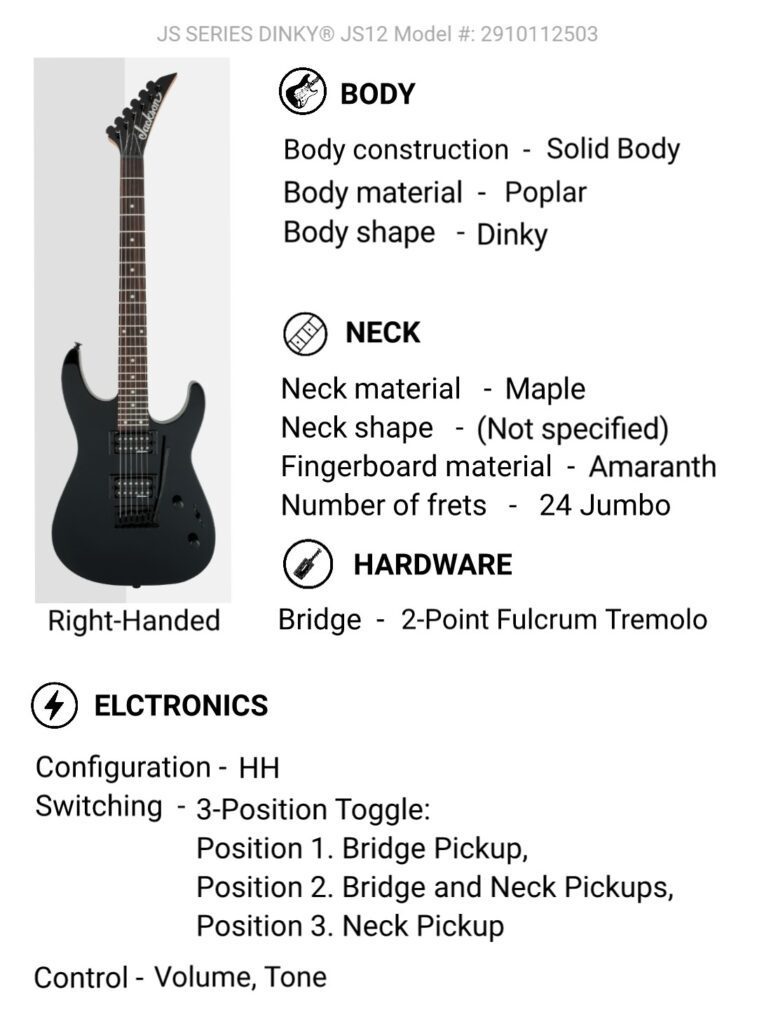
List of Best Ash Body electric guitar with Features and specifications, You can compare electric guitar
prices on different online stores.
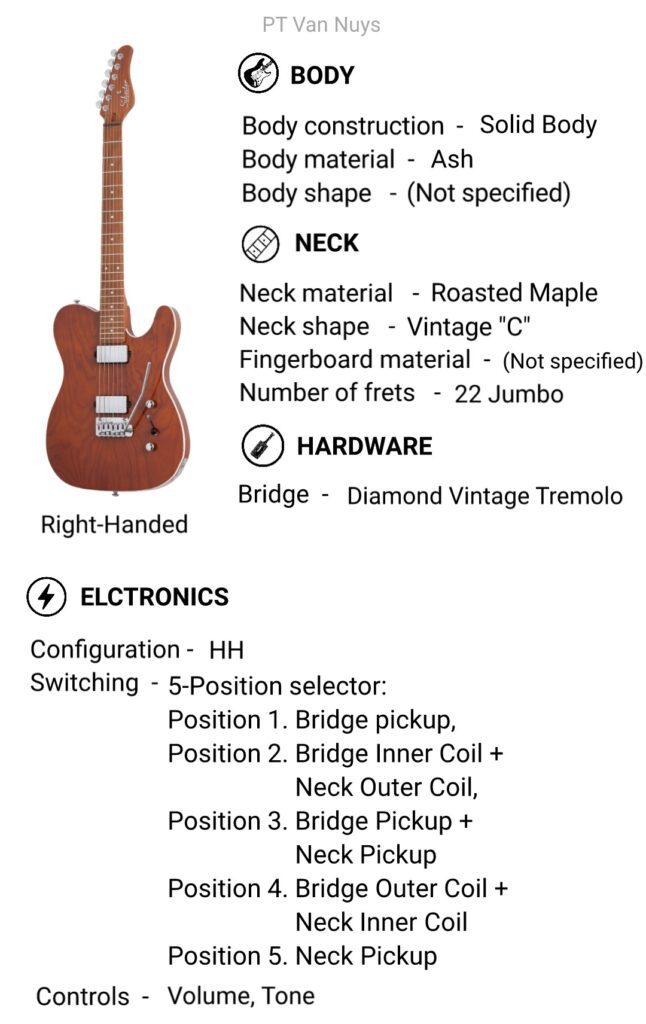
List of Best Nato Body electric guitar with Features and specifications, You can compare electric guitar
prices on different online stores.
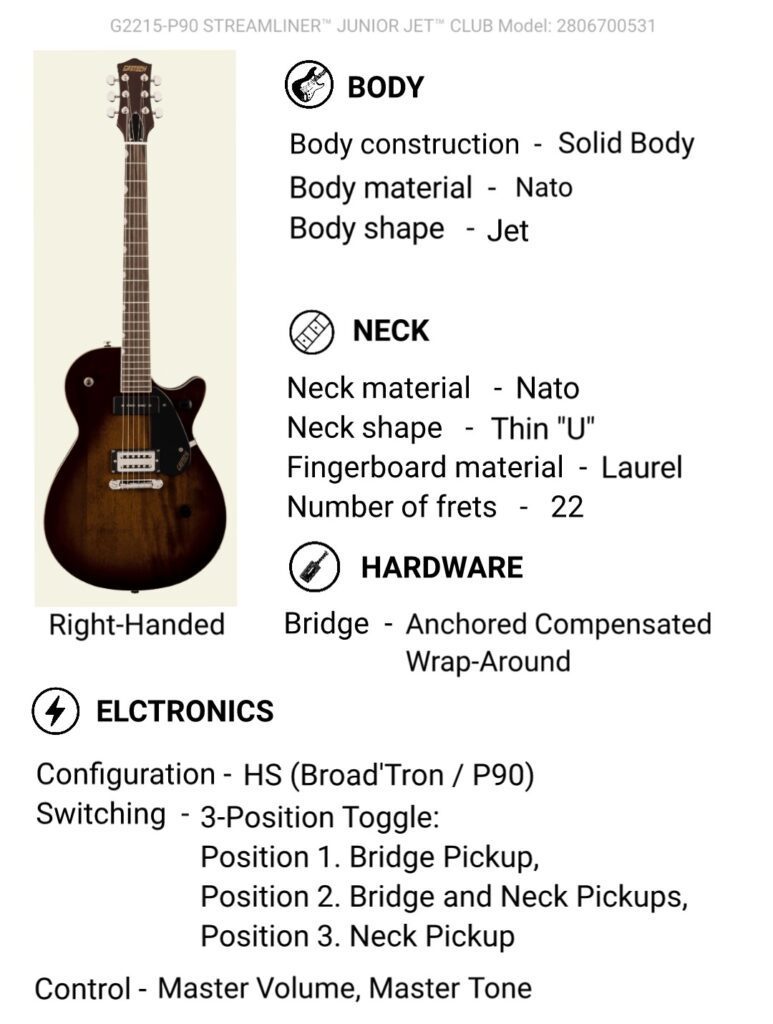
List of Best Basswood Body electric guitar with Features and specifications, You can compare electric guitar
prices on different online stores.

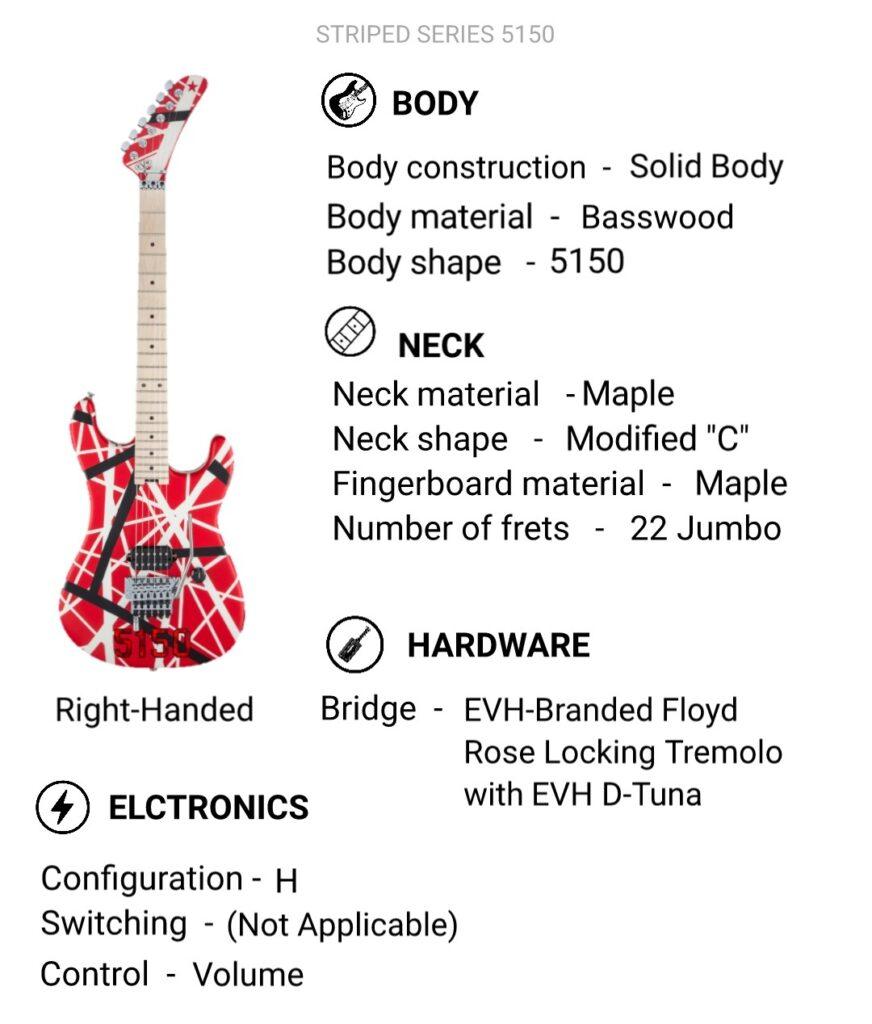
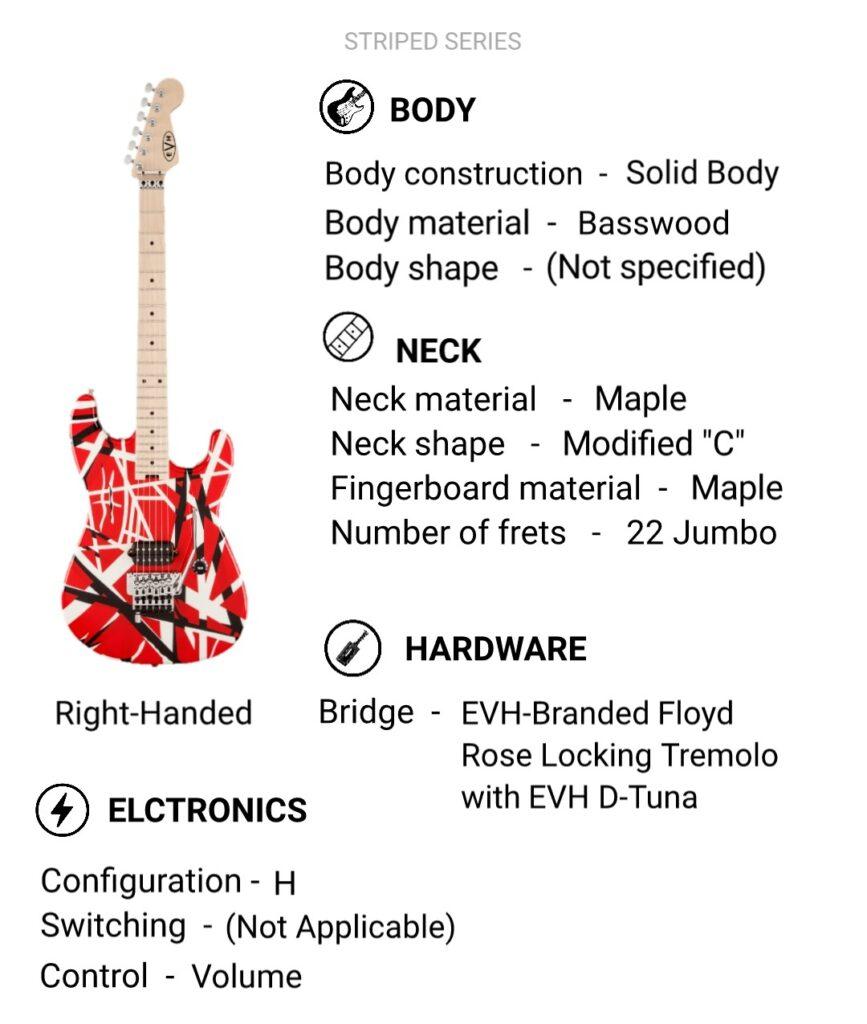
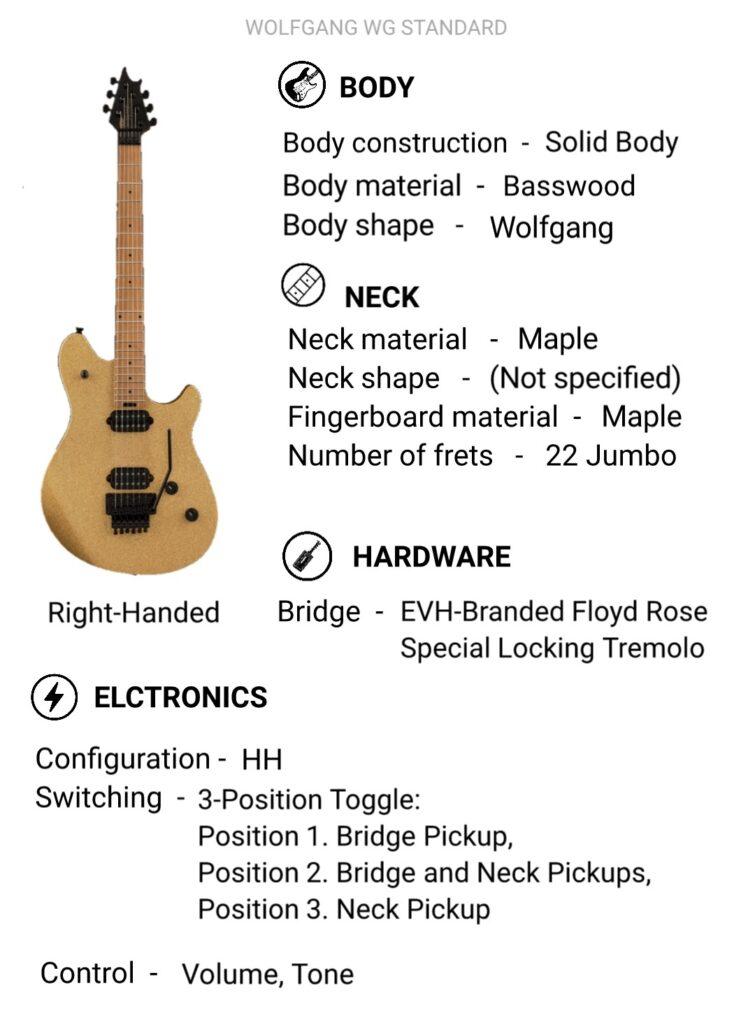
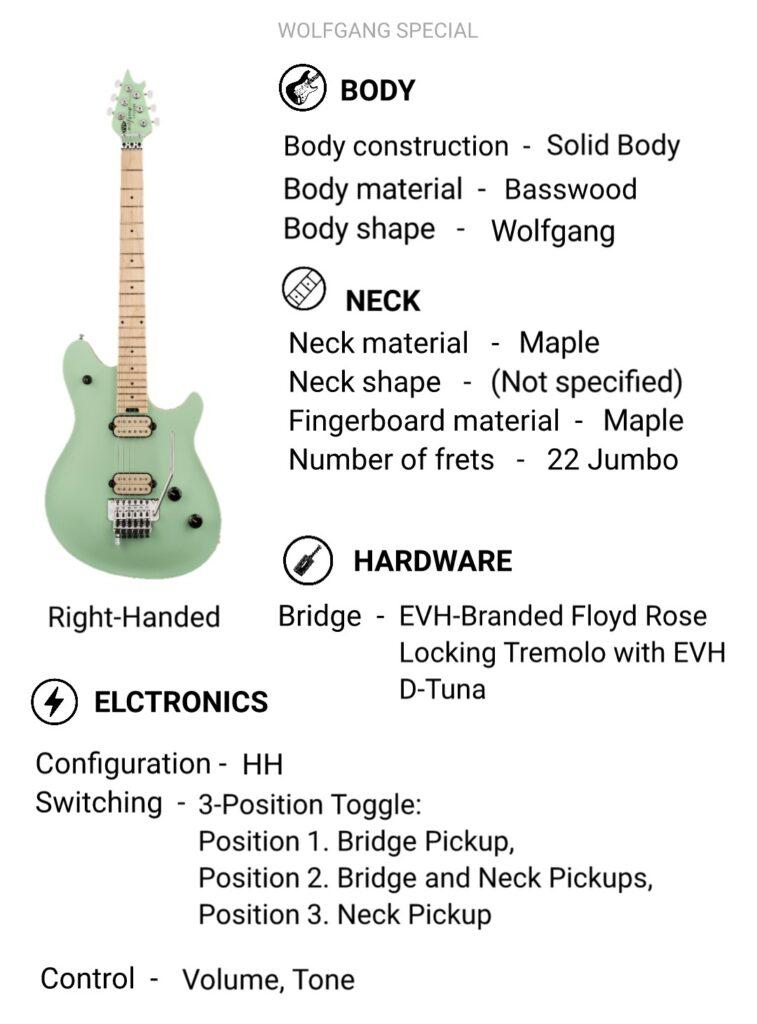
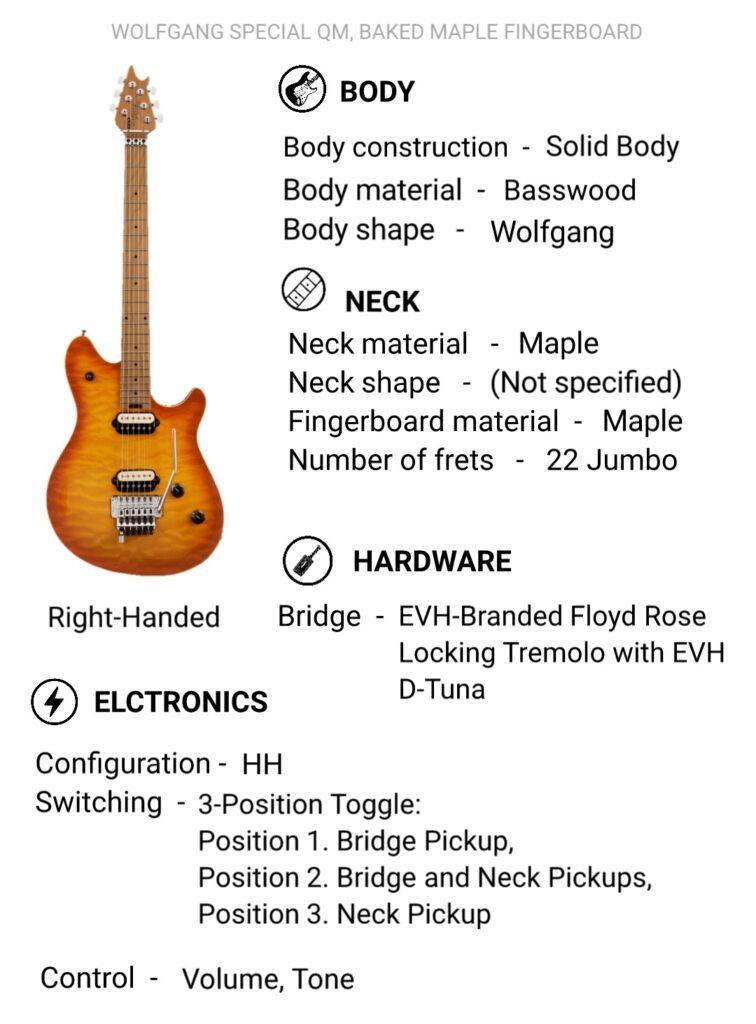
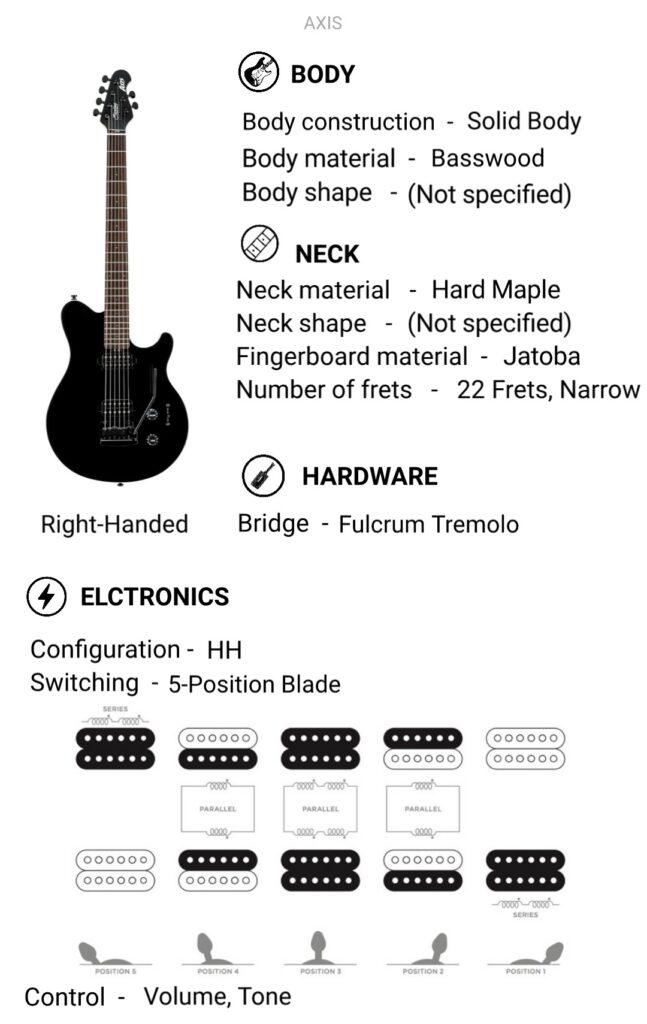
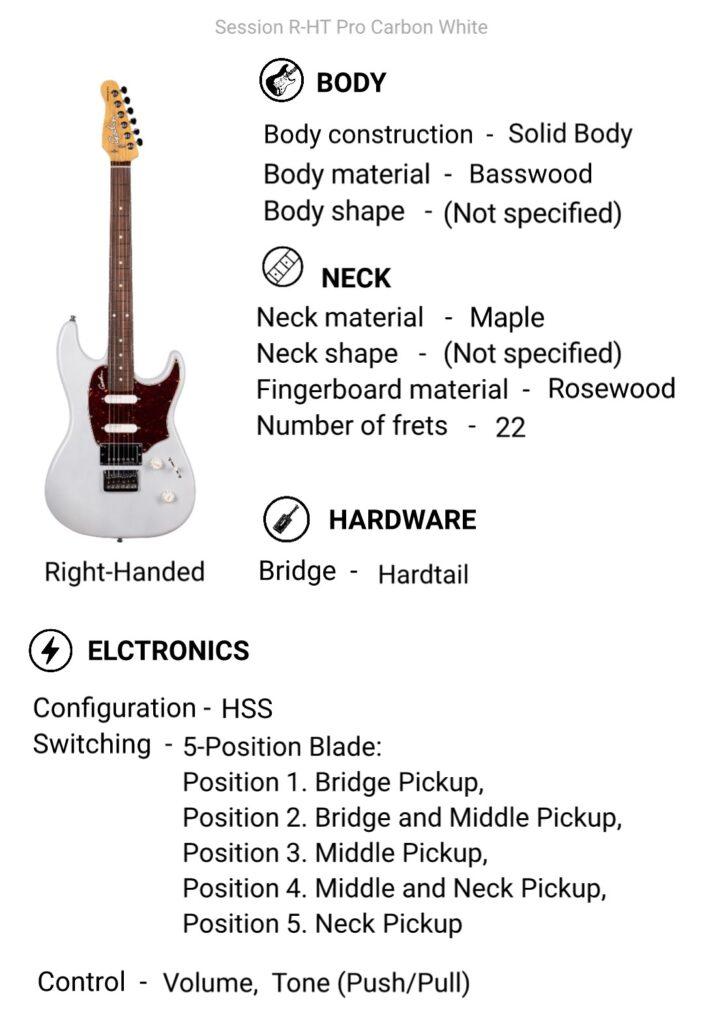
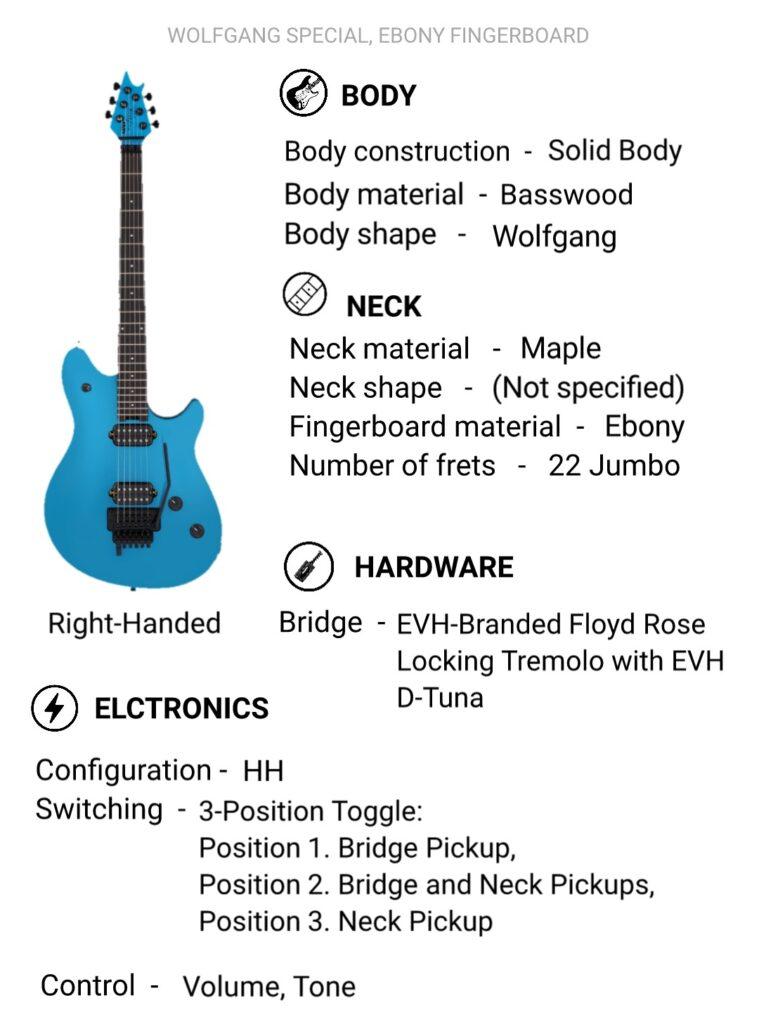
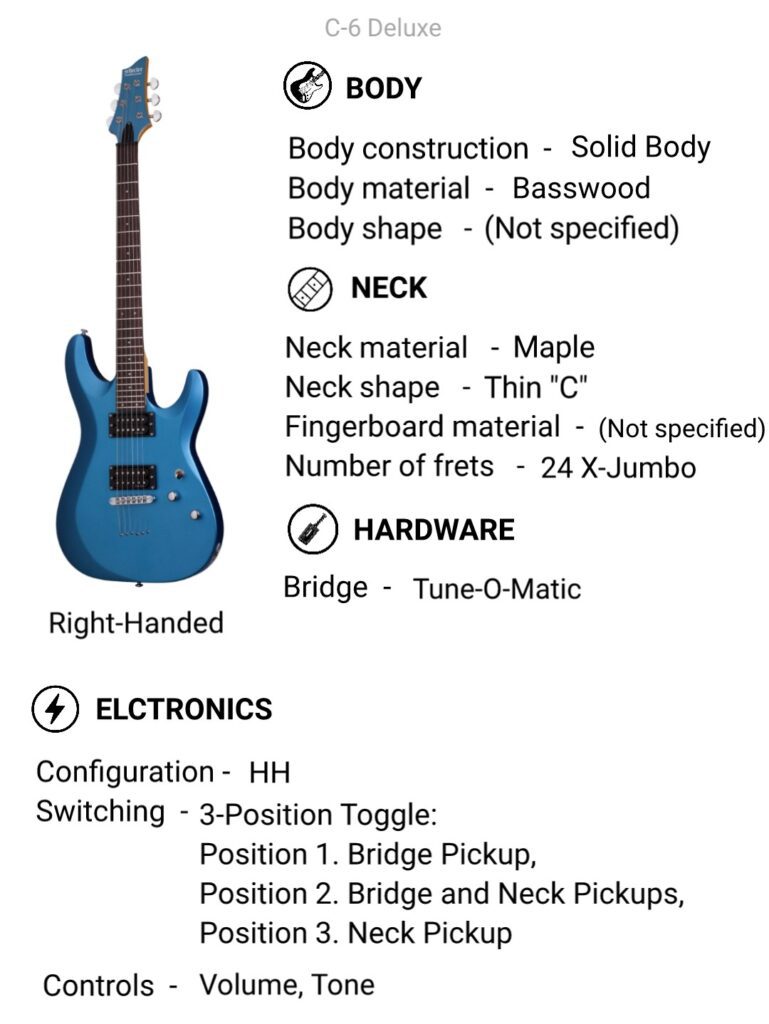
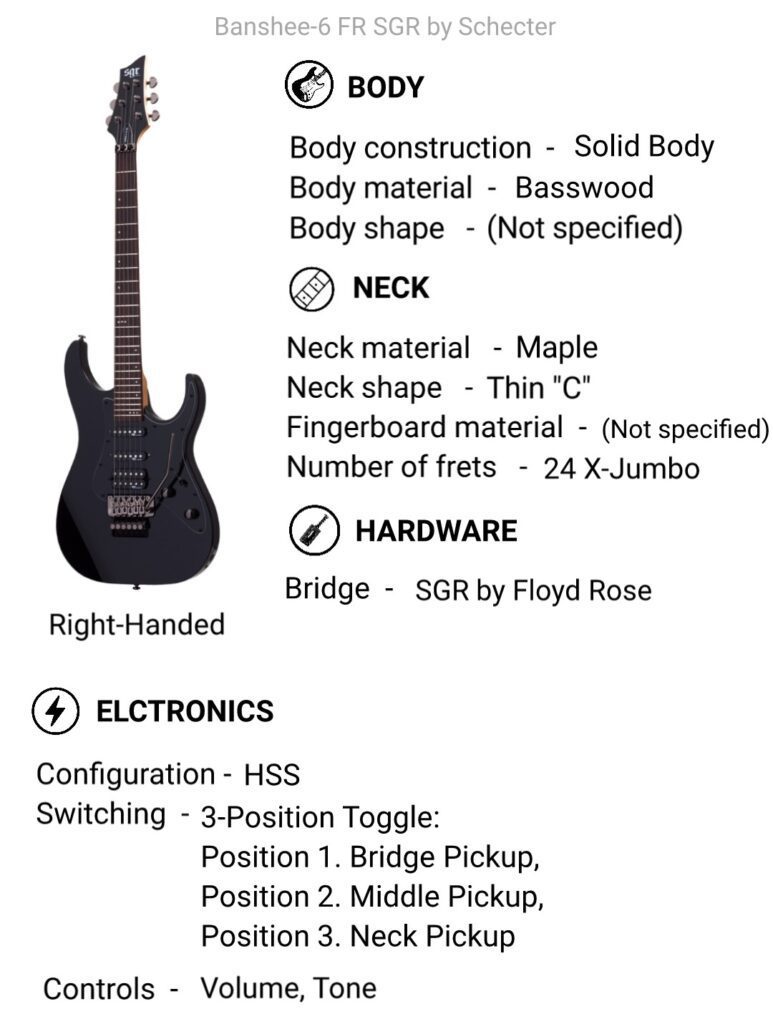
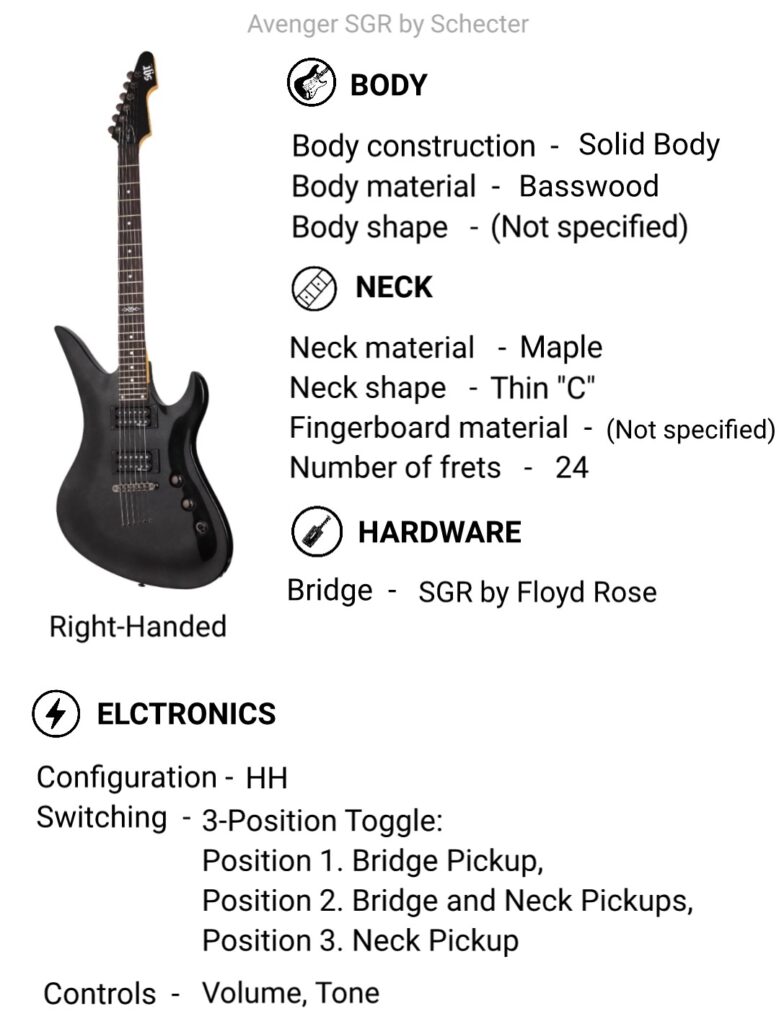
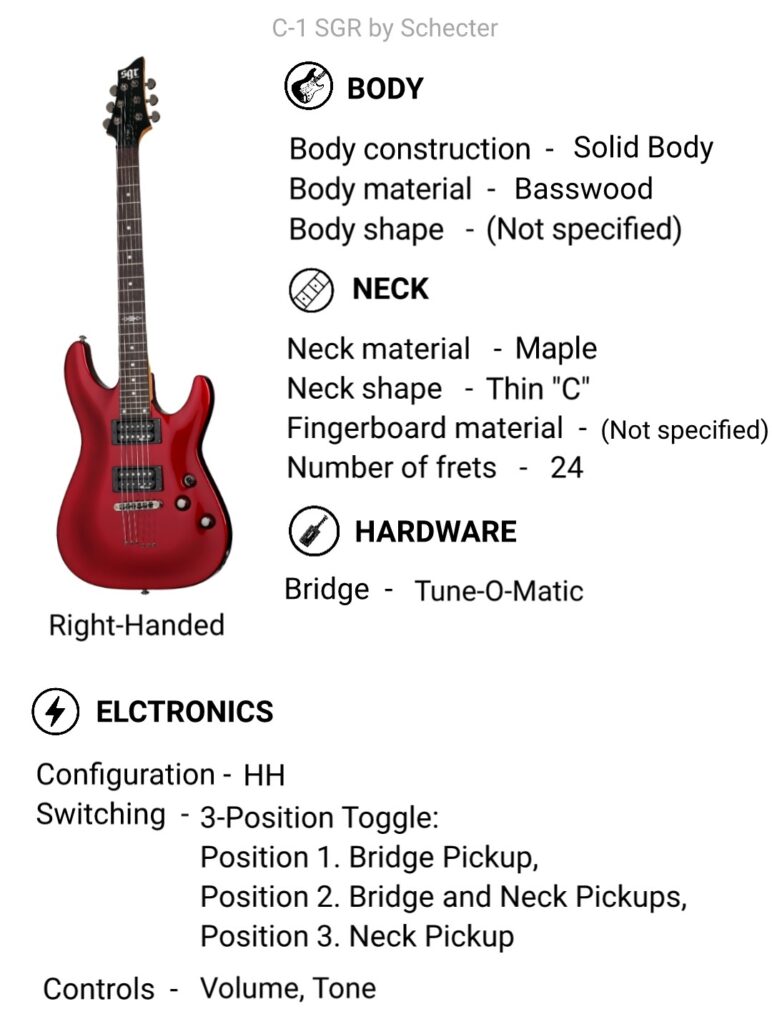
Best Semi-hollow body electric guitars with prices, specifications and features from difference online stores at infinicisum.net
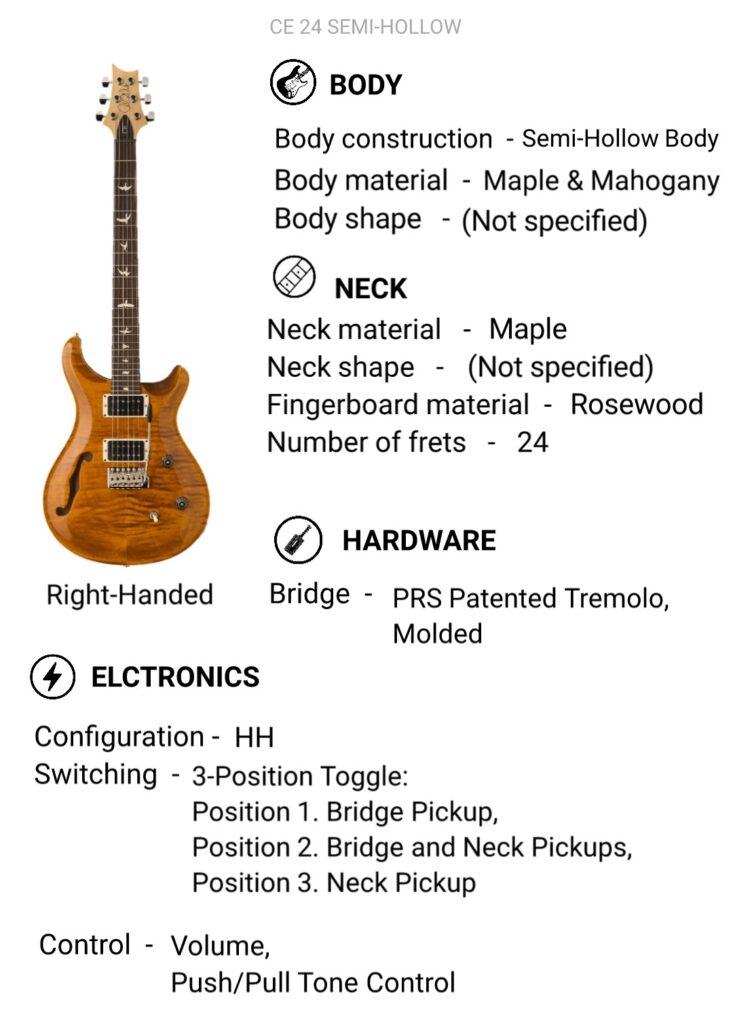
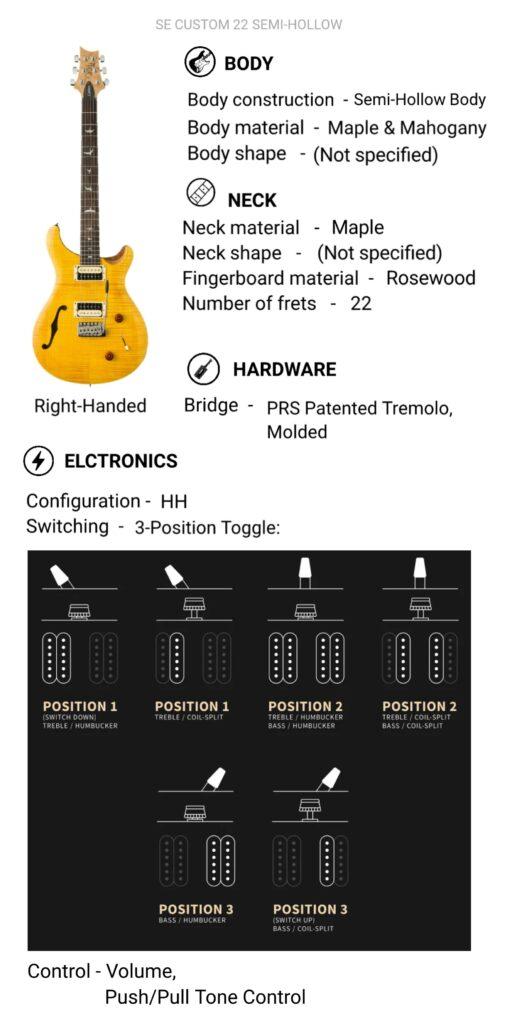

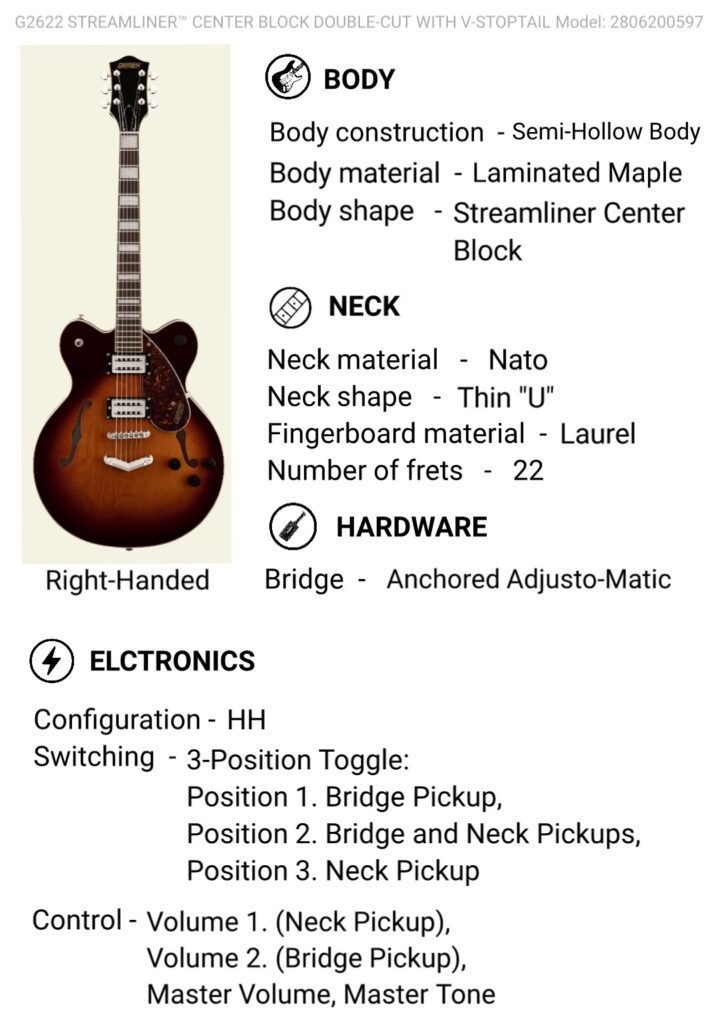
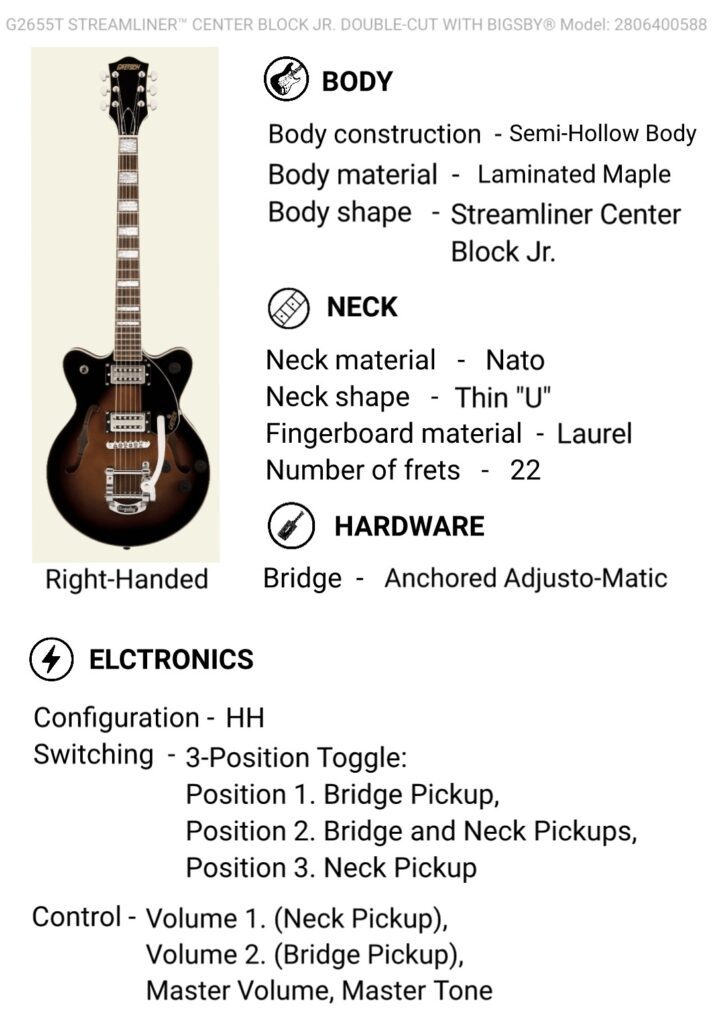
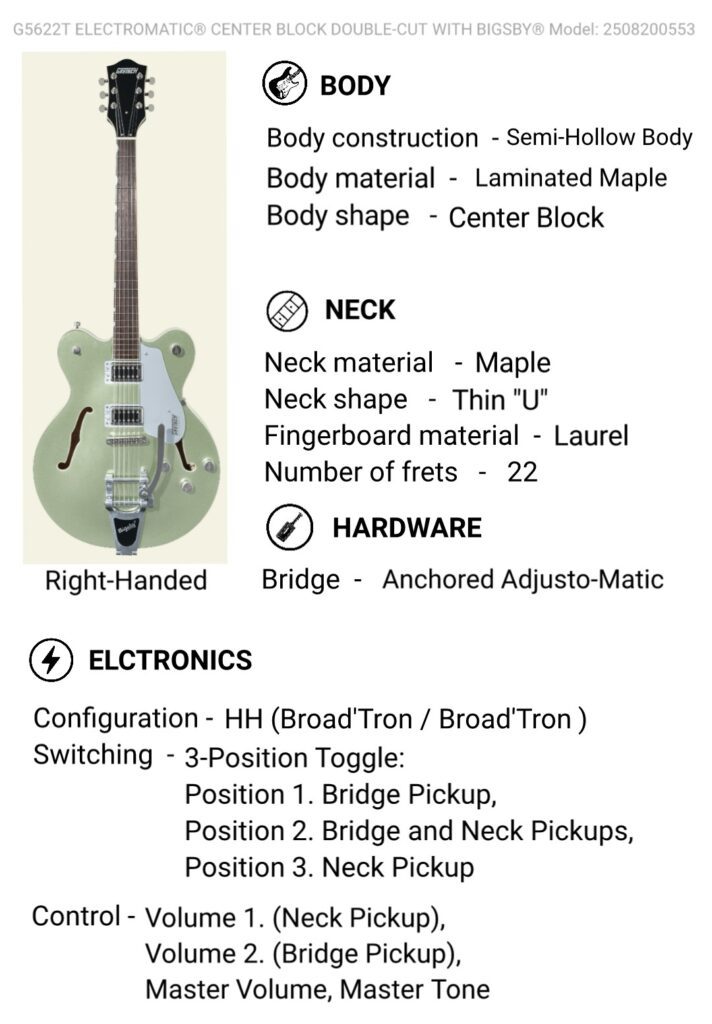
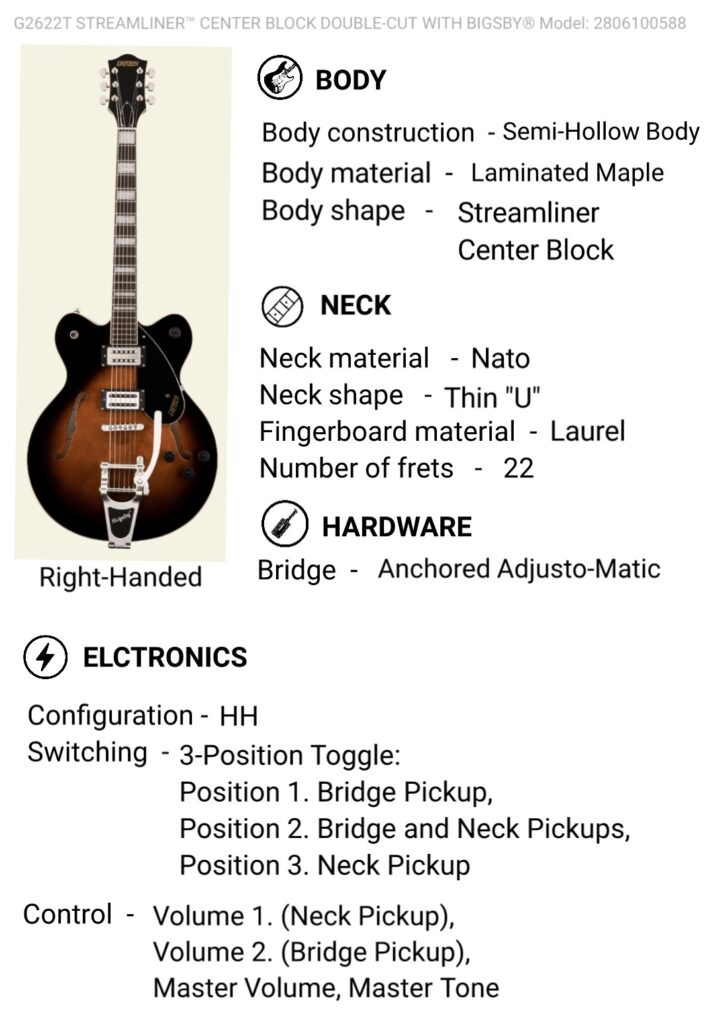
Introduction: Semi-hollow body electric guitars feature a solid center block running through the body, with hollow wings on either side. This construction offers a balance between the warm, resonant tone of a hollow body guitar and the feedback resistance and sustain of a solid-body guitar.
”Read_More”
Evolution and Development: The concept of the semi-hollow body guitar emerged in the 1950s when guitar manufacturers sought to address the feedback issues associated with fully hollow instruments while retaining their desirable tonal qualities. One of the earliest and most iconic semi-hollow guitars is the Gibson ES-335, introduced in 1958. Its innovative design featured a solid maple block down the center, providing stability and reducing feedback while preserving the instrument’s acoustic-like tone.
Design and Construction: Semi-hollow body guitars typically have a top, back, and sides made of wood, with f-shaped sound holes on the upper bout. The solid center block, often made of maple, runs from the neck joint to the bridge, providing support and enhancing sustain. The hollow wings contribute to the guitar’s resonance and acoustic-like qualities.
Tonal Characteristics: The semi-hollow body design results in a unique sonic profile characterized by warmth, clarity, and a pronounced midrange. The combination of the solid center block and hollow wings produces a rich, resonant tone with enhanced sustain. Semi-hollow guitars excel in genres that demand dynamic range and articulation, such as jazz, blues, rockabilly, and alternative rock.
Versatility and Applications: Semi-hollow body guitars are prized for their versatility, capable of producing a wide range of tones suitable for various musical styles. Their balanced sonic character makes them ideal for both clean, melodic playing and overdriven, gritty tones. Guitarists appreciate their ability to cut through the mix in a band context while retaining warmth and clarity.
Popular Models and Players: In addition to the Gibson ES-335, several other manufacturers produce acclaimed semi-hollow body guitars. Models like the Epiphone Casino, Gretsch Streamliner, and PRS S2 Custom 22 have gained popularity among players of all levels. Renowned artists such as Chuck Berry, B.B. King, Eric Clapton, and Dave Grohl have all wielded semi-hollow guitars, contributing to their enduring appeal.
Conclusion: Semi-hollow body electric guitars offer a compelling blend of vintage aesthetics, tonal richness, and modern playability. Their versatile nature makes them suitable for a wide range of musical genres and playing styles, making them an essential tool in the arsenal of many guitarists seeking expressive and dynamic tones. Whether in the studio, on stage, or at home, semi-hollow guitars continue to captivate players with their timeless sound and character.
Semi-hollow body electric guitars are suitable for a diverse range of musical genres due to their unique sonic characteristics and versatile playing capabilities. Here’s an explanation of the genres where semi-hollow body guitars excel:
Overall, the versatile nature of semi-hollow body electric guitars makes them suitable for a wide range of musical genres, from traditional blues and jazz to modern rock, indie, and beyond. Their warm, resonant tone, enhanced sustain, and dynamic response continue to captivate players across various musical styles, making them an essential tool for expressive and emotive playing.
Choosing the right semi-hollow body electric guitar involves considering several factors to ensure it meets your playing style, preferences, and musical needs. Here’s a guide to help you make an informed decision:
By considering these factors and taking the time to play and compare different models, you can choose the right semi-hollow body electric guitar that suits your playing style, preferences, and budget.
Pros:
Cons:
Overall, semi-hollow body electric guitars offer a unique blend of acoustic warmth, resonance, and versatility, making them an attractive option for players seeking a guitar with character and charm. However, they may not be suitable for players who require high-gain distortion or maximum sustain in their playing style.
Hollow body and semi-hollow body electric guitars are two distinct types of instruments, each with its own unique characteristics and advantages. Here’s a comparison of the two:
Hollow Body Electric Guitars:
Semi-Hollow Body Electric Guitars:
In summary, the choice between hollow body and semi-hollow body electric guitars ultimately comes down to personal preference and the specific requirements of the player. Hollow body guitars excel in producing warm, resonant tones ideal for jazz and blues, while semi-hollow guitars offer greater versatility and reduced feedback, making them suitable for a wider range of musical genres and playing styles.
The history of semi-hollow body electric guitars dates back to the mid-20th century when guitar manufacturers sought to combine the acoustic qualities of hollow body guitars with the reduced feedback of solid-body designs. Here’s a brief overview of the evolution of semi-hollow body guitars:
Overall, the history of semi-hollow body electric guitars reflects a continuous quest for the perfect balance between acoustic resonance and electric performance, resulting in instruments beloved by musicians around the world.
”Read_Less”
list of all Jackson electric guitars with prices, specifications and features from difference online
stores at infinicisum.net

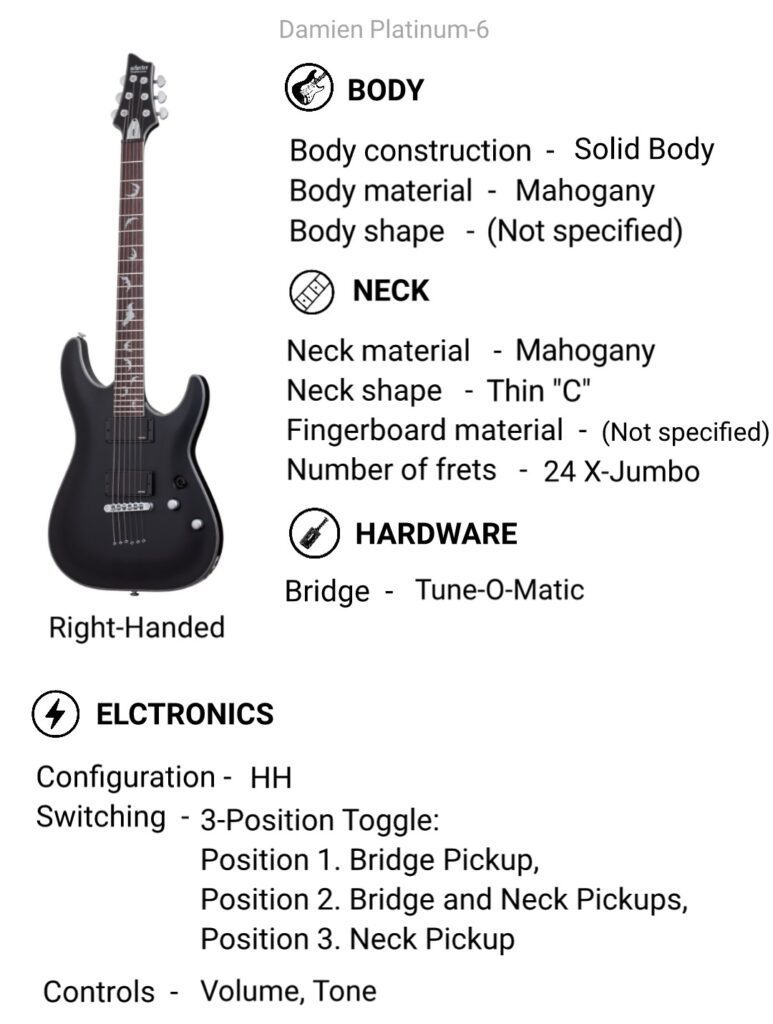
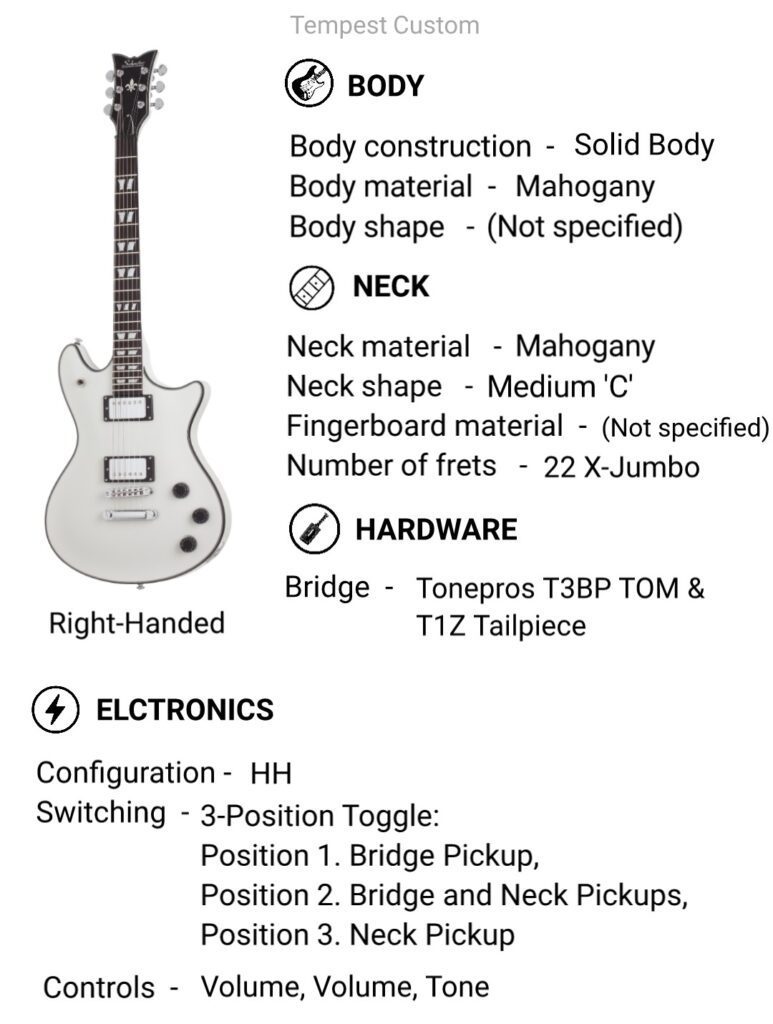
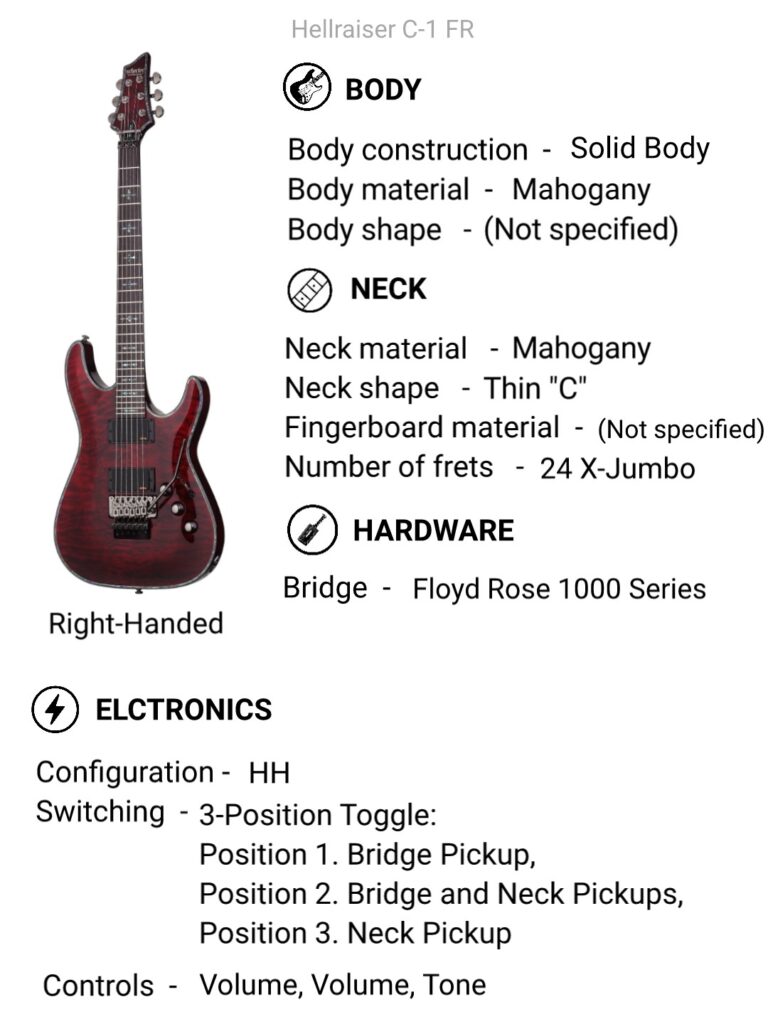
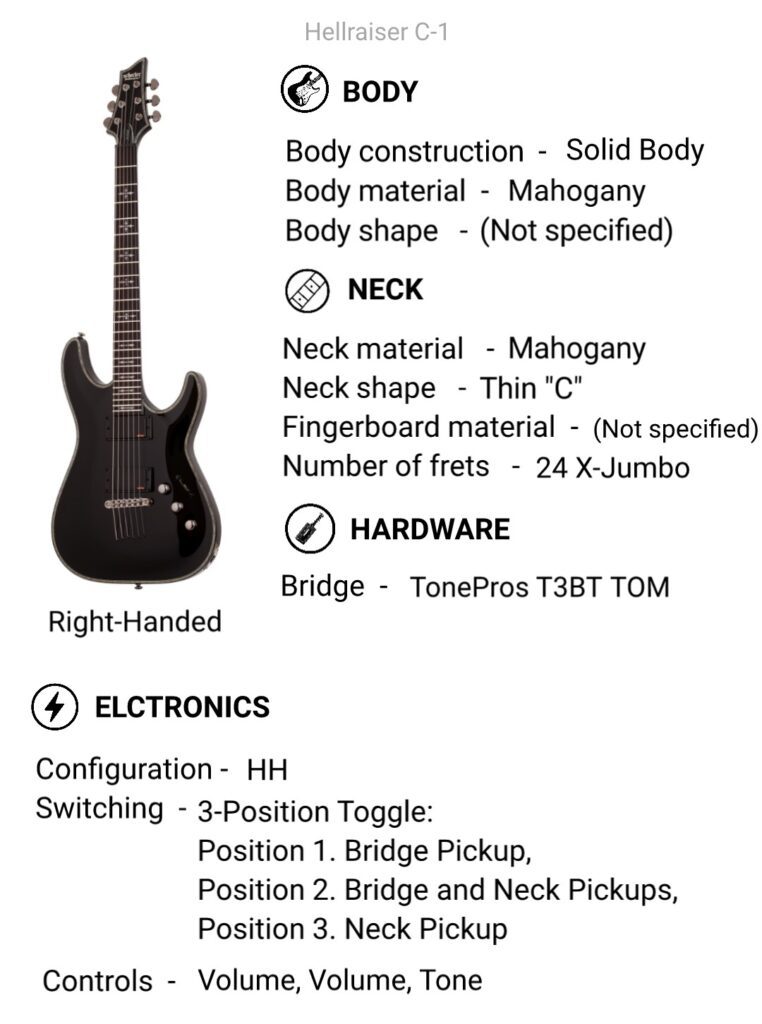

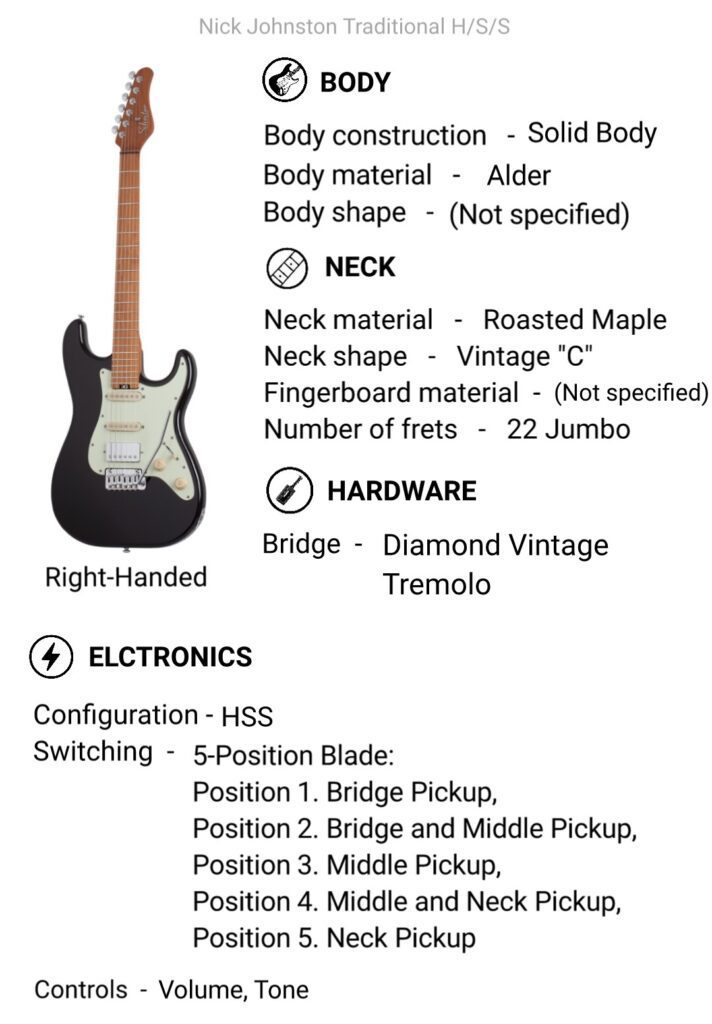

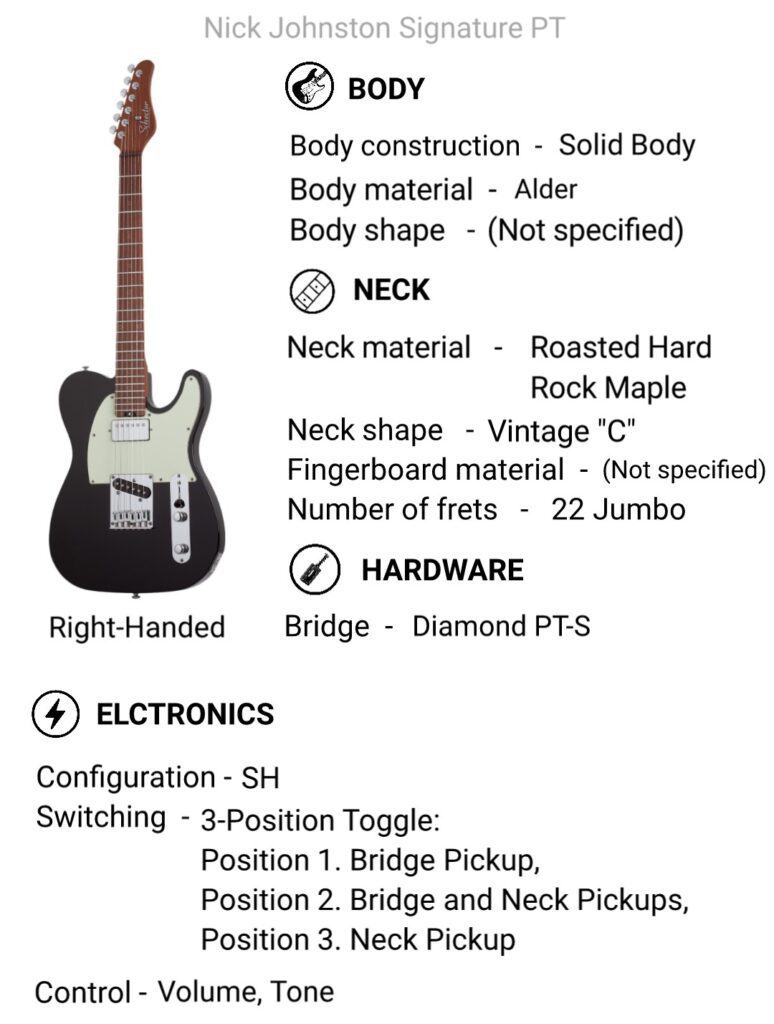

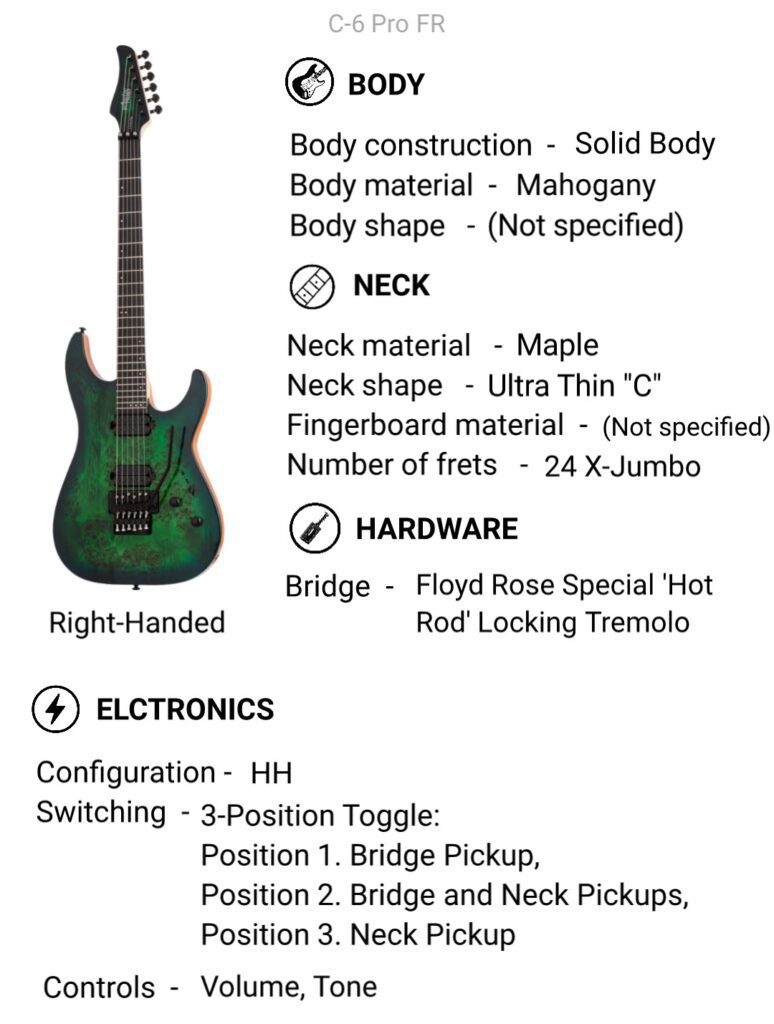
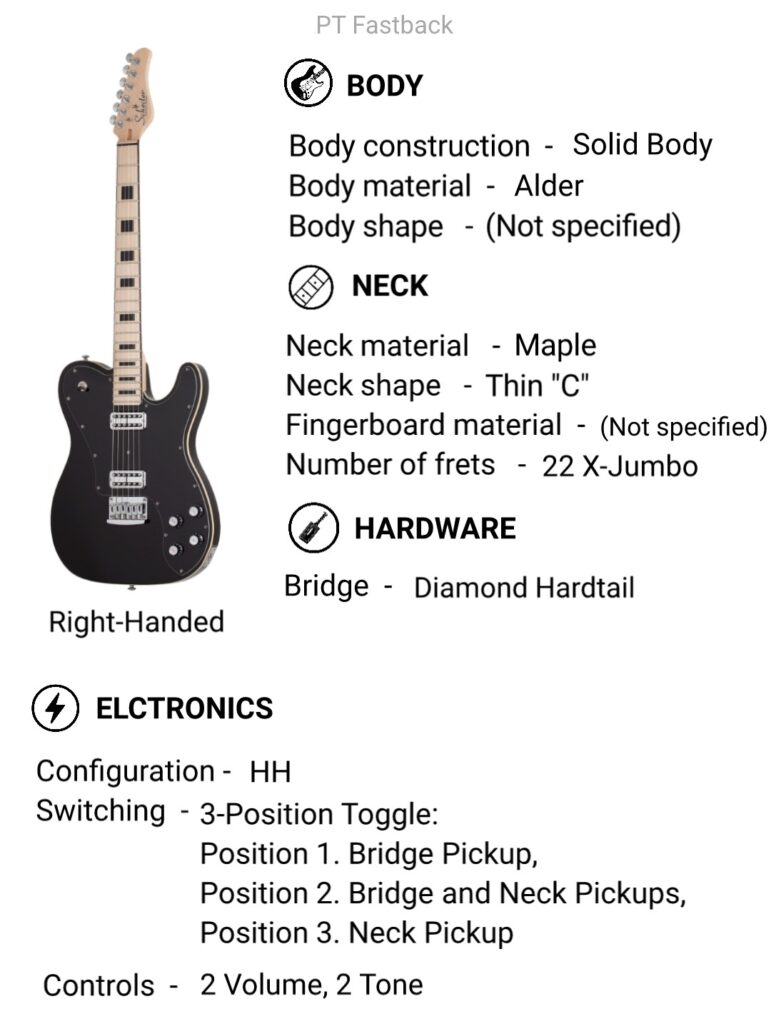





Introduction: In the realm of electric guitars, Schecter Guitar Research has carved a niche for itself by combining cutting-edge design, high-performance features, and a commitment to meeting the diverse needs of modern guitarists. From the searing tones of the Hellraiser series to the sleek designs of the Banshee and the collaborative masterpieces with artists like Keith Merrow, Schecter’s electric guitar lineup is a testament to innovation and precision craftsmanship.
”Read_More”
The Hellraiser series is known for its combination of premium features and a dark aesthetic. Guitars in this series often feature active EMG pickups, mahogany bodies, and set neck constructions. The Hellraiser series is favored by players in heavy metal and hard rock genres.
The Omen series is designed to offer quality and affordability. These guitars are well-suited for players seeking an entry-level or mid-range instrument without compromising on performance. Omen guitars often feature basswood or mahogany bodies and a variety of pickup configurations.
The C-1 series includes a range of models designed for versatility and performance. These guitars typically feature mahogany bodies, set necks, and a variety of pickup configurations. The C-1 series is known for its balance of playability and tone.
The Blackjack series is geared towards modern players who demand high-performance features. Guitars in this series often feature slim profiles, extended scale lengths, and a variety of high-output pickups. The series is suitable for players in rock, metal, and progressive genres.
The S-1 series includes guitars with sleek and stylish designs. These guitars often feature a double-cutaway body shape, making them comfortable and accessible for various playing styles. The S-1 series is known for its balance of aesthetics and playability.
The KM series represents guitars designed in collaboration with guitarist Keith Merrow. These guitars are tailored for modern metal players and often feature extended scale lengths, multi-scale designs, and high-output pickups. The KM series is recognized for its focus on technical precision and versatility.
The E-1 series includes guitars with a classic single-cutaway design. These guitars often feature mahogany bodies, set necks, and a variety of pickup configurations. The E-1 series is known for its traditional aesthetic combined with modern features.
The Banshee series is designed for players seeking versatility and high-performance features. Guitars in this series often feature a double-cutaway body shape, fast neck profiles, and a variety of pickup options. The Banshee series is suitable for players in various genres.
The Reaper series features guitars designed for modern players with a focus on ergonomics and playability. Guitars in this series often have contoured bodies, slim neck profiles, and a variety of pickup configurations. The Reaper series is known for its modern design elements.
The Sun Valley Super Shredder series is tailored for players who prioritize speed and technical playing. Guitars in this series often feature super-strat designs, Floyd Rose tremolo systems, and high-output pickups. The series is recognized for its focus on shred-friendly features.
The Apocalypse series is designed for players who seek aggressive tones and modern features. Guitars in this series often feature swamp ash bodies, multi-scale designs, and high-output pickups. The Apocalypse series is known for its modern aesthetic and versatile performance capabilities.
Schecter’s Custom Shop series features custom and limited-edition guitars crafted with meticulous attention to detail. These guitars often showcase unique finishes, premium materials, and custom appointments. The Custom Shop series represents the pinnacle of Schecter craftsmanship.
The Diamond series encompasses various models, including classic and signature guitars. These guitars are known for their diverse designs and features, catering to a broad range of playing styles and preferences.
Schecter offers signature models in collaboration with renowned artists. These guitars are designed to the specifications and preferences of the featured artists, often featuring unique finishes, pickups, and custom appointments.
Schecter periodically releases special edition and limited-run guitars. These guitars often showcase unique finishes, features, and specifications. They cater to collectors and players looking for distinctive instruments.
Choosing the right Schecter electric guitar involves considering various factors that align with your playing style, preferences, and budget. Here’s a guide to help you make an informed decision:
By considering these factors, you can narrow down your options and find the Schecter electric guitar that suits your playing style and preferences. Remember that the “right” guitar is ultimately the one that inspires you to play and create music.
Schecter electric guitars are known for their diverse range of models, high-quality construction, and suitability for various playing styles. However, like any brand, they come with their own set of pros and cons. Here’s a breakdown to help you make an informed decision:
In summary, Schecter electric guitars are celebrated for their versatility, high-quality construction, and innovative designs. The cons are generally subjective and depend on individual preferences and playing styles. It’s recommended to try out different Schecter models in person, if possible, and consider your specific needs when making a decision.
The history of Schecter Guitar Research is a fascinating journey that began with a small repair shop and evolved into a renowned brand known for its high-quality electric guitars. Here’s an overview of the key milestones in the history of Schecter:
Schecter’s journey from a small repair shop to a major player in the guitar industry showcases the brand’s resilience, commitment to craftsmanship, and ability to adapt to the evolving needs of musicians. The diverse lineup of Schecter electric guitars continues to attract players seeking high-performance instruments across different genres.
”Read_Less”